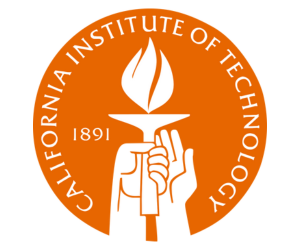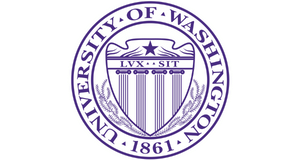Are you looking for top universities in the USA for CS? There are more than 100 top universities in USA for MS in computer science available according to QS University Subject ranking.
If you want to study computer science then you must check out these top 100 universities in USA for MS in computer science. Also, 30 universities are featured in one of the 100 top universities in the world.
Read on to find out more about the Top 100 universities in the USA for MS in computer science. Alternatively, see the full computer science colleges here:
Top 10 universities in USA for ms in computer science
| # | College Name | Established Date | Location | College Logo |
|---|---|---|---|---|
| 1 | Stanford University | 1885 | Stanford, California |  |
| 2 | Massachusetts Institute of Technology (MIT) | 1861 | Cambridge, Massachusetts |  |
| 3 | Carnegie Mellon University | 1900 | Pittsburgh, Pennsylvania |  |
| 4 | University of California, Berkeley | 1868 | Berkeley, California |  |
| 5 | California Institute of Technology (Caltech) | 1891 | Pasadena, California |  |
| 6 | Harvard University | 1636 | Cambridge, Massachusetts |  |
| 7 | University of Illinois Urbana-Champaign | 1867 | Champaign, Illinois |  |
| 8 | Princeton University | 1746 | Princeton, New Jersey |  |
| 9 | University of Washington | 1861 | Seattle, Washington |  |
| 10 | University of Texas at Austin | 1883 | Austin, Texas |  |
Top 100 Universities in USA for MS in Computer Science
- Colleges name given below: Stanford University
- Massachusetts Institute of Technology (MIT)
- Carnegie Mellon University
- University of California, Berkeley
- California Institute of Technology (Caltech)
- Harvard University
- University of Illinois Urbana-Champaign
- Princeton University
- University of Washington
- University of Texas at Austin
- Georgia Institute of Technology
- University of Michigan – Ann Arbor
- Columbia University
- University of California, San Diego
- University of Wisconsin-Madison
- University of Maryland, College Park
- University of Pennsylvania
- University of California, Los Angeles (UCLA)
- University of Chicago
- University of California, Irvine
- University of Massachusetts Amherst
- New York University (NYU)
- Purdue University West Lafayette
- University of Florida
- University of Southern California (USC)
- Ohio State University
- North Carolina State University
- University of California, Santa Barbara
- University of Colorado Boulder
- Texas A&M University
- University of Minnesota Twin Cities
- Johns Hopkins University
- University of California, Davis
- Northwestern University
- University of Pittsburgh
- University of Virginia
- Rutgers, The State University of New Jersey
- Pennsylvania State University
- Brown University
- Rice University
- University of North Carolina at Chapel Hill
- Duke University
- Stony Brook University
- Virginia Tech
- University of Arizona
- Arizona State University
- University of Iowa
- Michigan State University
- Indiana University Bloomington
- Northeastern University
- Dartmouth College
- University of Notre Dame
- Boston University
- University of California, Riverside
- University of Delaware
- Florida State University
- University of California, Santa Cruz
- Syracuse University
- University of Utah
- Washington University in St. Louis
- Colorado State University
- University of Connecticut
- University of Cincinnati
- University of Kentucky
- University of Oregon
- University of Houston
- University of South Florida
- University of Miami
- University of Tennessee Knoxville
- University at Buffalo SUNY
- Case Western Reserve University
- University of Nebraska-Lincoln
- George Washington University
- Temple University
- University of Alabama
- University of Kansas
- University of Oklahoma
- University of Missouri
- Louisiana State University
- University of Arkansas
- University of New Mexico
- University of Hawaii at Manoa
- University of South Carolina
- University of Maine
- West Virginia University
- Mississippi State University
- University of Nevada, Reno
- University of Wyoming
- University of North Dakota
- University of Montana
- South Dakota State University
- University of Alaska Fairbanks
- New Mexico State University
- University of Idaho
- University of Vermont
- University of Rhode Island
- University of New Hampshire
- University of Alaska Anchorage
- University of Puerto Rico Mayaguez
- University of Guam
What is Computer Science?
Computer Science is like the brain for computers. It’s the study of how we make computers do smart things. Think of it as the language computers use to understand and solve problems. Computer Science helps create cool apps, websites, and everything tech-related. It’s about making machines smart and doing amazing stuff with them!
FAQs on Computer Science
Q: What is Computer Science?
A: Computer Science is the study of computers and computational systems. It involves programming, algorithms, data analysis, and problem-solving.
Q: Why is Computer Science important?
A: Computer Science is crucial in today’s digital age. It powers technology, drives innovation, and impacts various industries, from healthcare to entertainment.
Q: What jobs can I get with a Computer Science degree?
A: A CS degree opens doors to diverse careers, including software development, data analysis, cybersecurity, artificial intelligence, and more.
Q: Is coding experience necessary for Computer Science studies?
A: While coding experience can be helpful, many Computer Science programs cater to beginners. You can learn coding skills during your studies.
Q: Can I study Computer Science without a strong math background?
A: Yes, some programs offer introductory math courses. However, having a basic understanding of math concepts like algebra and logic can be beneficial.
Q: What skills do I need for a Computer Science career?
A: Key skills include problem-solving, logical thinking, coding proficiency (in languages like Python, Java, etc.), and effective communication.
Q: How long does it take to complete a Computer Science degree?
A: Typically, a Bachelor’s degree takes about 4 years. Master’s programs vary but can take an additional 1-2 years.
Q: Are there online Computer Science programs available?
A: Yes, many universities offer online CS programs. These provide flexibility for working professionals or those unable to attend traditional classes.
Q: What’s the future of Computer Science?
A: The field continues to grow with increasing demand for technology. Future trends include AI, machine learning, cybersecurity, and advancements in data science.
Q: Can I switch to Computer Science from a different major?
A: Yes, many programs accept students from diverse academic backgrounds. Some additional coursework may be required to catch up on foundational knowledge.
Top 50 Best Universities In Computer Science
10 Top Universities in the World
Top 100 Ranked Universities in the World
779+ Best Online Colleges No Application Fee